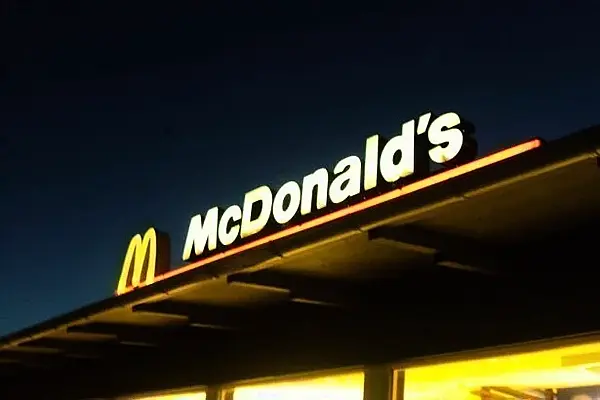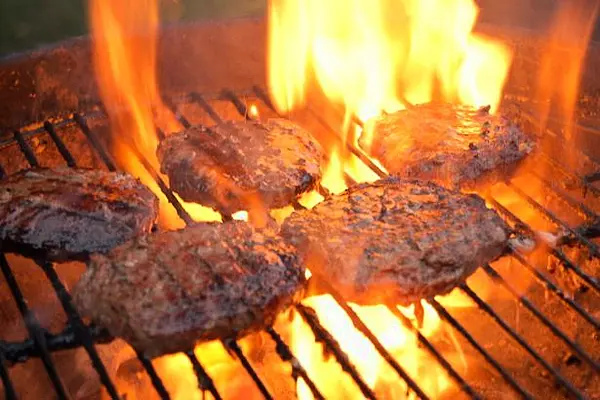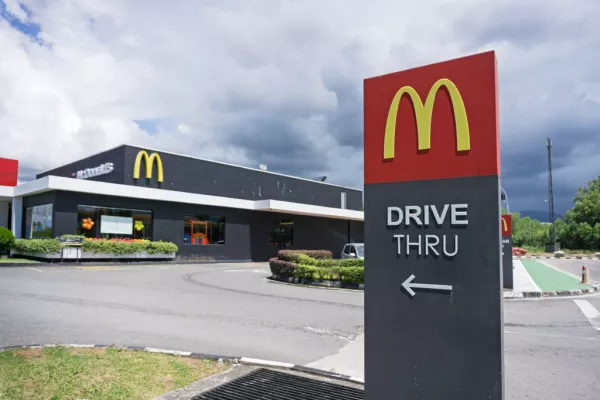Carl Icahn is broadening a push to get McDonald's Corp MCD.N to improve suppliers' treatment of pigs raised for bacon and sausage.
Details
The billionaire activist investor, who has described himself as an animal lover, on Thursday called on the burger chain to make a global pledge to eliminate the use of metal enclosures to house pregnant pigs. He has said the enclosures, known as gestation crates, are "obscene" and cause pigs unnecessary pain.
McDonald's last month said that it would remove gestation crates from its U.S. supply chain by 2024, pushing back a 10-year goal it set in 2012 with Icahn's urging.
Pork producers use the crates, which are about 7 feet (2.1 m) long and 2 feet wide, to confine mother pigs with no room to turn around.
Icahn said he also wants McDonald's to commit to buying pork from suppliers that abide by standards set in a California animal-welfare law, Proposition 12. Approved by California voters in November 2018, the measure prohibits confining a breeding pig with less than 24 square feet of usable floor space.
McDonald's had no immediate comment on Icahn's call for a global commitment or on his demand that the company buy only from suppliers that comply with Proposition 12.
Icahn nominated two members to McDonald's board of directors in an escalating fight over the treatment of pigs by suppliers.
"Perhaps if McDonald's leaders applied the same efforts they do towards obtaining better compensation packages for themselves to getting their suppliers to become completely gestation crate free, we wouldn't be having this proxy fight," Icahn said.
Icahn and his daughter, Michelle Icahn Nevin, have said McDonald's claims are misleading because the company allows producers to keep pregnant pigs in gestation crates for the first four to six weeks of their 16-week pregnancies.
Asked to comment, McDonald's said it has not backtracked on its 2012 pledge. The company said last month that a move to "crate-free" pork is impossible with the current U.S. pork supply and would be "a departure from the veterinary science used for large-scale production."
McDonald's said it expects to buy 85% to 90% of its U.S. pork from sows, or mother pigs, not housed in gestation crates during pregnancy by the end of 2022.
Ten years ago, the Humane Society of the United States worked with Icahn as an adviser and pushed Tyson Foods Inc TSN.N for a board seat to fight the use of gestation crates. The Humane Society's CEO at the time did not get the seat.
Icahn and his daughter said they are also concerned with other welfare issues for farm animals.
FACTBOX-McDonald's, Icahn Fight Puts Spotlight On Pig Welfare
Billionaire activist investor Carl Icahn has drawn attention to the use of metal enclosures to house pregnant pigs in a dispute with McDonald's Corp MCD.N over its pork suppliers' animal-welfare practices.
McDonald's last month said that it would remove the enclosures, known as gestation crates, from its U.S. supply chain by 2024, pushing back a 10-year goal it set in 2012.
Icahn says McDonald's policy is misleading because the company allows pork producers to keep pigs in crates for the first four to six weeks they are pregnant.
Here are some companies' policies:
MCDONALD'S: McDonald's says it expects to source 85% to 90% of its U.S. pork from sows, or mother pigs, not housed in gestation crates during pregnancy by the end of the year. More than 60% of McDonald's U.S. supply chain phased out the use of the crates for pregnant sows by early 2022, the company says. McDonald's says it sources about 1% of U.S. pork production.
WENDY'S: Wendys Co WEN.O says it will shift its supply chain to "open pen/group housing for confirmed pregnant sows" by the end of 2022. Under the plan, sows may still be housed in individual crates for four to six weeks until pregnancy is confirmed, Wendy's says. About 10% of Wendy's bacon and sausage was sourced from confirmed-pregnant sows held in open pens or group housing at the start of 2022, the company says.
BURGER KING: Burger King owner Restaurant Brands International Inc QSR.TO says it is on track to eliminate suppliers' use of gestation crates for housing pregnant sows in North America, Australia and New Zealand by 2022. Company executives "understand that crates may still be used by suppliers prior to confirming a sow's pregnancy," a spokesperson says. In Europe, the company has committed to eliminating the use of gestation crates for non-pregnant sows.
TARGET: Target Corp TGT.N pledged in 2012 to work with vendors to eliminate sow gestation crates by 2022. The company says sows will be housed in open groups after pregnancy is confirmed and that Target is working toward an "overall crate-free goal."
HUMANE SOCIETY: The Humane Society of the United States says the term "confirmed pregnant" is a "made-up euphemism for keeping pigs in gestation crates for an arbitrary amount of time." Pigs, which are artificially inseminated to become pregnant, should not be confined in gestation crates so small that they cannot turn around, the group says.
SMITHFIELD FOODS: McDonald's supplier Smithfield Foods, the world's largest pork producer, says it provides "group housing for pregnant sows during their 16-week gestation period."
Owned by Hong Kong-listed WH Group Ltd 0288.HK, Smithfield says it uses individual crates for breeding "to help ensure a sow's successful conception, a practice supported by multiple scientific studies."
The Humane Society, in a lawsuit against Smithfield, says the company has deceived consumers about its use of restrictive, individual crates during gestation. Smithfield denies the claims.
TYSON FOODS: Meat processor Tyson Foods Inc TSN.N says it owns and raises less than 10% of the pigs used in its pork business. The company's suppliers "choose their sow housing systems, with a growing number converting to open pen gestation," the company says.
As of 2019, approximately 53% of Tyson-owned sows on contract farms were housed in open pens, the company said. When including independent suppliers, 21% of Tyson's total pork supply was derived from sows housed in open pen systems as of 2019.
Tyson said in a 2019 report that industry research had "yet to conclusively prove which sow housing system best facilitates responsible production across all welfare and sustainability focus area."
NY Pension Chief Says McDonald's, PepsiCo Should Consider Russia Risk
The above news was followed by news that the chief of New York state's pension fund has said that McDonald's Corp MCD.N, PepsiCo PEP.O and other companies with a large footprint in Russia "need to consider whether doing business in Russia is worth the risk during this extraordinarily volatile time."
Political pressure is building for companies to halt business in Russia because of its invasion of Ukraine. Some big companies have already said they will do so, including sneaker maker Nike and home furnishings firm IKEA.
"Russia's unprovoked invasion of Ukraine and its highly unpredictable foreign policy are a threat to the global economy," New York State Comptroller Thomas DiNapoli, who oversees the state's public pension fund, said in a statement.
"We're encouraging the companies we invest in to do a risk analysis and determine what is in the best interests of their company and their shareholders," he said.
McDonald's - one of the first western brands to open in Moscow in 1990 as the Soviet Union was crumbling - has 847 locations there, 84% of which are company owned.
Pepsi is also notable as one of the few Western products allowed in the Soviet Union. It has two production plants and sells snacks and beverages in the country, according to its most recent annual report for 2021.
The companies did not immediately respond to a request for comment. Both companies have about 4% revenue exposure to Russia, according to a J.P. Morgan Report.
News by Reuters, edited by Hospitality Ireland. Click subscribe to sign up for the Hospitality Ireland print edition.









